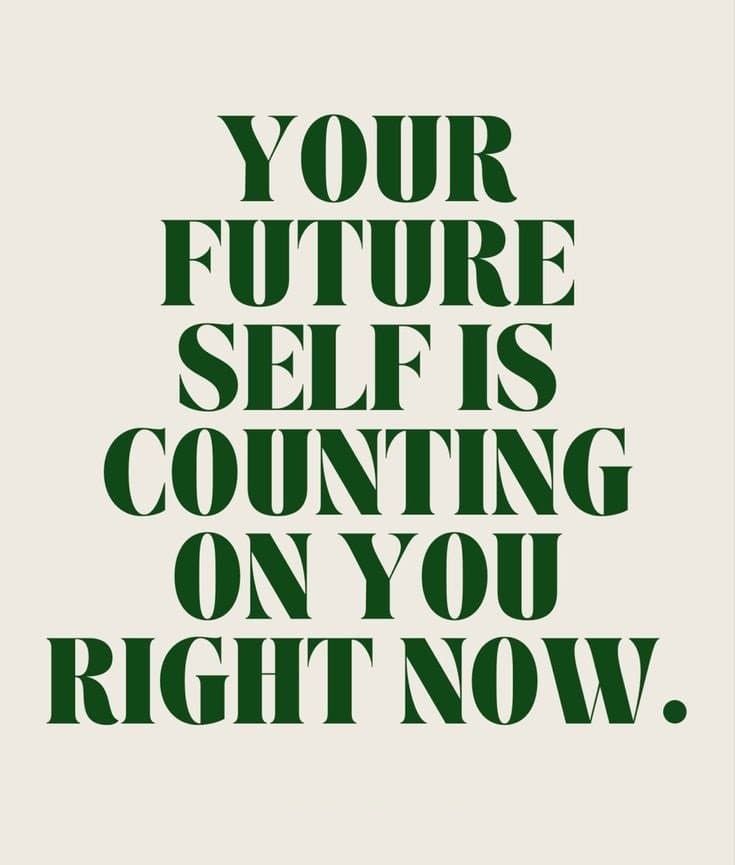Unlock Your Potential: How Believing in Yourself Can Take You Far
Most of us aspire to be more confident—having that sense of certainty in our own abilities, qualities, and judgment sounds very appealing. The American Psychological Association defines self-confidence as “a belief that one is capable of successfully meeting the demands of a task.”¹
This concept can be broad, reflecting a general belief that you can manage your life, or it might apply to specific situations. You could, for instance, be very sure of yourself in one domain and far less certain in another. Research shows that a robust sense of confidence is crucial for both overall health and psychological well-being.²
However, confidence can be tricky to develop and equally easy to lose if you feel you have failed or made an error. Hence, it’s essential to actively nurture your self-confidence. As cliché as it may sound, you really do have to believe in yourself.
“The doubt that comes with second-guessing yourself has both internal and external repercussions,” says Hannah Owens, LMSW. “Confidence not only shapes how you feel about yourself, but it also signals to others that you’re trustworthy and competent—which is beneficial in social contexts and at work.”
Ways to Be More Confident
Maintaining a solid level of self-confidence often leads to greater achievements, both personally and professionally. Research has indicated that individuals with higher levels of confidence typically perform better academically.³ Moreover, how self-assured you are can even influence how you conduct yourself around others.
Fortunately, there are multiple avenues to boost self-confidence. Whether your hesitation is limited to a certain area or you have difficulty feeling confident about anything, the nine strategies below may help.
Stop Comparing Yourself to Others
Do you size up your looks against those of social media influencers? Or perhaps you compare your income to a friend’s paycheck? According to social comparison theory, comparing yourself to others is instinctive. But these comparisons rarely enhance self-confidence; in many cases, they do the opposite.

A study from 2018, published in Personality and Individual Differences, demonstrated a clear correlation between envy and self-perception.⁴ Specifically, the more people compare themselves to others, the more envy they feel—and that envy worsens how they view themselves.
To break this cycle, remind yourself that such comparisons are unproductive. Everyone follows a personal path, and life is not a competition.
If you notice envy creeping in, it can help to reflect on your own victories and strengths. Keeping a gratitude log, where you note down the things you appreciate about your life, can refocus your attention on your own situation instead of someone else’s.
“Social media, in particular, can be notorious,” Owens notes. “It’s almost designed to promote comparison. But remembering that people mainly post the most extreme highs or lows of their experiences can help you focus on your daily accomplishments, ultimately boosting your confidence.”
Surround Yourself With Positive People
Consider how your friends or acquaintances affect your mindset. Do they uplift you, or drag you down? Do they criticize you constantly, or do they accept you as you are?

Individuals in your immediate circle can significantly impact your thoughts about yourself, often more than you suspect. Observe your emotional state after interacting with certain people. If you feel worse about yourself following encounters with a particular person, it may be wise to spend less time with them.
Instead, look for people who genuinely care about you and actively want the best for you. Seek out those who are optimistic and can help bolster your sense of self. An upbeat attitude and strong self-confidence are closely intertwined.⁵
Take Care of Your Body
One key aspect of enhancing your confidence is acknowledging that it can be difficult to feel good about yourself if you neglect your body’s needs. By practicing self-care, you take deliberate steps to support your mind, body, and spirit, which naturally fosters a stronger sense of self-esteem.
Below are some self-care methods known to correlate with greater self-confidence:⁶
- Diet: A balanced eating plan brings numerous advantages, including elevated confidence and self-esteem. Consuming nutrient-rich foods often leads to feeling stronger and more energized, which translates into feeling better about yourself overall.
- Exercise: Multiple studies consistently show that exercising enhances self-confidence. For example, research in 2016 revealed that regular physical activity can improve how participants perceive their bodies, which subsequently increases confidence.⁷
- Meditation: This practice is not solely about relaxation; it can boost confidence by helping you develop self-awareness and acceptance. Meditation also trains you to curb negative self-talk and detach from unproductive thoughts that undermine your belief in yourself.
- Sleep: Insufficient rest can strongly affect your emotional well-being, whereas quality sleep has been linked to positive personal traits like greater optimism and higher self-esteem.⁸
Caring for yourself is integral to being confident. Make sure you meet the necessary conditions to feel both physically and mentally capable.
“Looking after your body is not merely about outward appearances,” Owens clarifies. “When you make your own health and self-care a priority, you communicate to the world that you value yourself. This, in turn, encourages others to see you in the same light.”
Be Kind to Yourself
Self-compassion entails treating yourself with kindness if you slip up, fall short, or encounter difficulties. By responding compassionately, you stay more flexible emotionally and navigate challenging feelings in a healthier way, thus improving how you connect with yourself and the people around you.
“Taking care of your body doesn’t just mean looking good... When you make yourself and your self-care a priority, you are projecting to the world that you matter—which convinces others to feel the same way about you.”
— Hannah Owens, LMSW
A 2015 study linked self-compassion to self-confidence.⁹ So when you find yourself in a tough spot, remember that imperfection is part of being human. Aim to respond to hardships with understanding instead of self-criticism.
Practice Positive Self-Talk
Pessimistic self-talk can curb your capabilities and erode your confidence by persuading your subconscious that a task is “too difficult” or “pointless to attempt.”¹⁰ In contrast, encouraging self-talk can foster a sense of compassion and drive you to push through doubts and face new hurdles.
When you notice thoughts like “I should not even speak up in this meeting” or “I’m too unfit to exercise,” pause and acknowledge that these perceptions might be distorted. Next, reshape them into more constructive ideas.
Below are a few illustrations of how to turn negative self-talk into statements that can boost your confidence:
- “I can’t handle this” or “This is impossible” → “I am capable” or “I’ll give it a shot”
- “I can’t get anything right” → “I will do better next time” or “At least I gained some insight”
- “I hate public speaking” → “I’m uncomfortable with public speaking” and “Everyone has their own set of strengths and weaknesses”
Face Your Fears
Cease postponing your aspirations—like asking someone on a date or seeking a promotion—because you don’t yet feel “confident enough.” One of the most effective ways to strengthen self-confidence is to directly confront situations that make you nervous.¹¹
If your insecurities stem from fear of embarrassment or mistakes, proceed anyway. Some degree of apprehension can even sharpen your performance.¹² Think of it as an experiment—see what unfolds if you dare to try.
You may discover that mishaps or minor anxieties are not as disastrous as you imagined. Each step forward increases your faith in your own abilities. Ultimately, you can also steer clear of big risks with severe negative outcomes.
“This is certainly more challenging than it sounds,” Owens admits, “but small successes truly matter. It’s somewhat like exposure therapy—even incremental advances add up.”
Do Things You’re Good At
Engaging in activities where you excel can dramatically elevate your self-confidence. It further reinforces your strengths, boosting your belief in your potential. This also has an added advantage: it may make you feel more fulfilled in life.

According to one study, having faith that you can cultivate and expand your personal strengths is moderately tied to overall life satisfaction.¹³ Start by identifying the areas in which you truly shine, then seek out opportunities to practice them.
If you’re proficient in a particular sport, for instance, dedicate time each week to improving your skills. If there’s a task at work you handle exceptionally well, try to focus on it more frequently. Focusing on your existing talents is an excellent way to grow your confidence.
[7 Tips for Finding Your Purpose in Life]
Know When to Say No
While doing things you excel in can give your confidence a boost, it’s just as critical to recognize scenarios that might erode that confidence. Perhaps a specific activity repeatedly leaves you feeling worse about yourself rather than better.
It can be perfectly acceptable to decline activities that diminish your sense of self. Of course, you don’t want to avoid all discomfort, as confronting challenges often fosters growth. But there’s a balance between stepping outside your comfort zone and preserving your sense of self-assuredness.
Establishing clear emotional and social boundaries can help you feel more in control—an important element of self-confidence involves feeling you have agency over your own life.¹⁴ Boundaries reinforce that sense of agency.
Next time someone suggests doing something that will likely undermine your self-esteem, politely decline. You needn’t avoid it permanently; once you’re more comfortable with your confidence level, you can revisit it without risking setbacks.
Set Realistic Goals
Trying to reach your goals frequently entails several rounds of trial and error before you succeed. This can shake your belief in yourself and generate doubts about your capacity to achieve your ambitions. So how can you remain confident while still chasing your dreams? Setting realistic goals is the key.
Research shows that overly lofty goals, coupled with failures to meet them, can damage one’s confidence.¹⁵ By contrast, when goals are achievable, each success incrementally strengthens your faith in your abilities.
Crafting realistic goals starts by writing down what you wish to accomplish. Then, honestly assess how likely you are to achieve it. If the probability is extremely low, consider breaking it into something more attainable.
Some homework or professional advice might help here. If your aim is to lose weight, for example, many experts recommend a rate of one to two pounds per week as a healthy, sustainable approach.¹⁶ Aligning your goals with these guidelines can significantly improve your confidence as you see tangible progress.
Confidence vs. Insecurity
When you’re learning to bolster your self-confidence, it can help to see how people with healthy confidence differ from those who are more insecure. Here are several clear distinctions:
Confident People
- Celebrate others’ accomplishments
- Remain receptive to new ideas
- Look on the bright side
- Accept calculated risks
- Can poke fun at themselves
- Make firm decisions
- Strive to keep learning
- Own up to mistakes
- Take responsibility
Insecure People
- Criticize others or feel envious
- Resist new perspectives
- Expect the worst
- Fear change
- Conceal imperfections
- Struggle with making choices
- Act like a know-it-all
- Find excuses
- Shift blame to others
Being More Confident Has a Lot of Benefits
Not only does self-confidence typically feel rewarding, but it also provides numerous advantages in your daily life, from home and work to your interactions with friends and family. Below are some positive outcomes associated with increasing your confidence:
- Better performance: Instead of squandering energy on worries about inadequacy, you can devote it to the task at hand, leading to superior results.¹⁷
- Healthier relationships: Confidence shapes how you perceive yourself, but it also influences how you care for others. It can, for example, give you the strength to leave a relationship when your needs aren’t being met.
- Greater openness to try new things: Believing in yourself encourages you to step out of your comfort zone. Whether it’s applying for a new position or signing up for lessons in a skill you’re curious about, you’re more likely to seek opportunities when you trust your abilities.
- Enhanced resilience: When you have faith in yourself, it’s easier to bounce back from setbacks and challenges.
Recap
Becoming more self-confident can offer an array of rewards. It can lead you to feel more positive about who you are and what you can do, improve your relationships, and bolster how you handle life’s pressures.
Keep in Mind
Confidence issues are universal and occur at various points in life. Fortunately, numerous techniques can help you fortify your sense of self. In fact, simply “acting confident” can, at times, pave the way for genuine confidence.
“It’s akin to the principle that deliberately smiling can trick your brain into feeling happier,” Owens remarks. “When you project confidence—even if you don’t fully feel it—people will respond to you differently, which then lifts your own confidence, creating a reinforcing cycle.”
In some cases, though, persistent low self-confidence might point to an underlying mental health concern, such as depression or anxiety. If your insecurities are interfering with your work, social interactions, or education, think about seeking help from a mental health professional. A therapist can assist you in identifying the issues, propose treatments, and coach you in strategies for reinforcing your self-confidence.
Simply Believing You Can Improve Your Mental Well-Being Goes a Long Way
Frequently Asked Questions
How can you be more socially confident?
If social events make you feel uneasy, try viewing them as opportunities to sharpen your confidence skills rather than threats. Bringing along someone you trust can also alleviate nerves, providing the reassurance needed to feel calmer in group settings.
Being the host of the gathering can help, too, since you have some control over the environment. But if social interactions spark both intense anxiety and decreased self-esteem, consider talking to a mental health provider.
[Learn More: An Overview of Social Anxiety]
How can you be more confident in a relationship?
A useful strategy is to recognize and appreciate your own worth. When you understand the value you contribute, you naturally feel more secure in who you are. It may also help to remain present and not dwell on past disappointments or future what-ifs.
If a lack of self-assurance in relationships stems from a fear of rejection, remember that compatibility isn’t guaranteed. You might not be ideal for every person, just as they may not be right for you—it’s not personal.
[Learn More: Fear of Rejection and Its Consequences]
How can you be more confident at work?
If you question your competence on the job, schedule periodic check-ins with a supervisor for feedback. Identify where you can refine your skills, then work to fill those gaps—this will help you feel more capable.
Additionally, pinpoint tasks you excel at and try to take them on more frequently. If you slip up, own it, figure out the lesson, and move on. Everyone makes mistakes sometimes, so don’t expect perfection from yourself.
[Learn More: 6 Ways to Feel Better About Your Job]
How can you be more confident about your body?
When body image issues undermine your confidence, aim to focus on the features you do appreciate. Also, avoid matching your physical appearance against others’. Every body is inherently unique, each with its own advantages. And remember, the world accommodates all shapes and sizes.

























Responses (0 )